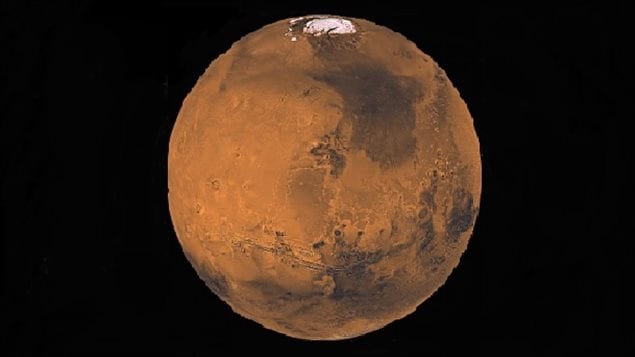There is weather, there is climate, and now there is macroweather.
All three are being studied on Mars. The idea is to help understand weather dynamics on Earth.
Shaun Lovejoy PhD is a professor of Physics at McGill University in Montreal and president of the Non-Linear Processes Division of the European Geo-Sciences Union
He is lead author of the study which appears in Geophysical Research Letters, November 13 edition
ListenProfessor Lovejoy and his team have come up with a new term called macroweather, and a somewhat different view of what constitutes weather and climate.
Macroweather is used to describe the relatively stable regime between very short term weather and very long range climate.

He now defines weather as a short term relatively unstable condition measured in days up to ten days, and macro-weather is a longer term of relatively more stable conditions when measured over years, in fact up to 100 years, and climate should be considered as being over several centuries.
To prove their theory about this transitional “macroweather” regime
Professor Lovejoy along with scientists at University College London (UK) studied data from the Viking Mars Lander of the 1970s and 80s along with more recent data from a satellite orbiting the red planet.
By taking into account how the sun heats Mars, as well as the thickness of the planet’s atmosphere, the scientists predicted that Martian temperature and wind would fluctuate similarly to Earth’s – but that the transition from weather to macroweather would take place over 1.8 Martian days (about two Earth days), compared with a week to 10 days on Earth.
Their study indicates that the sun plays an important role in this transition, and professor Lovejoy says the analysis of the data from Mars confirmed their prediction quite accurately.
Presently forecasters can only predict weather a week to perhaps ten days ahead, but he says by combining known statistics into this new way of looking at the relationship of weather macroweather and climate, long term predictions of conditions would be much more accurate to weeks, months and possibly even decades.
http://onlinelibrary.wiley.com/doi/10.1002/2014GL061861/abstract







For reasons beyond our control, and for an undetermined period of time, our comment section is now closed. However, our social networks remain open to your contributions.